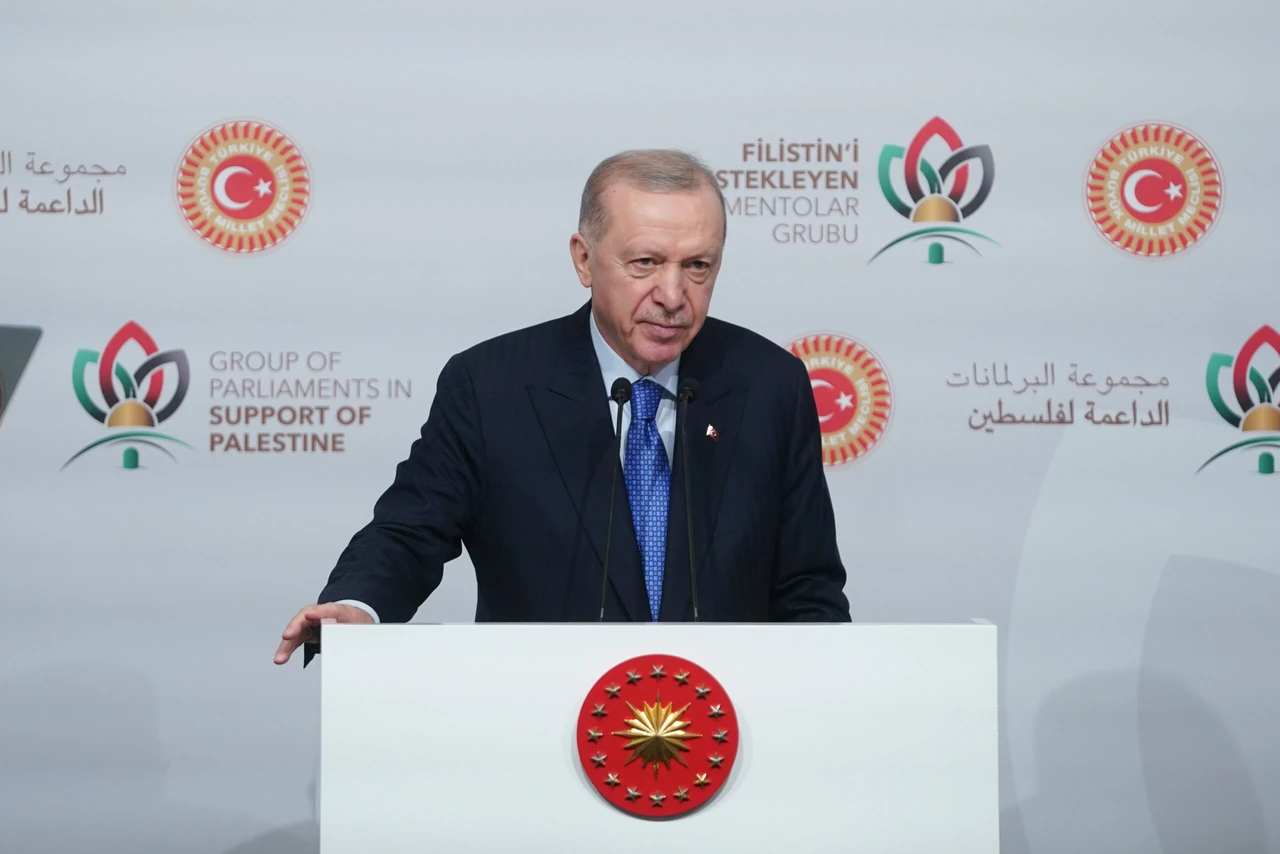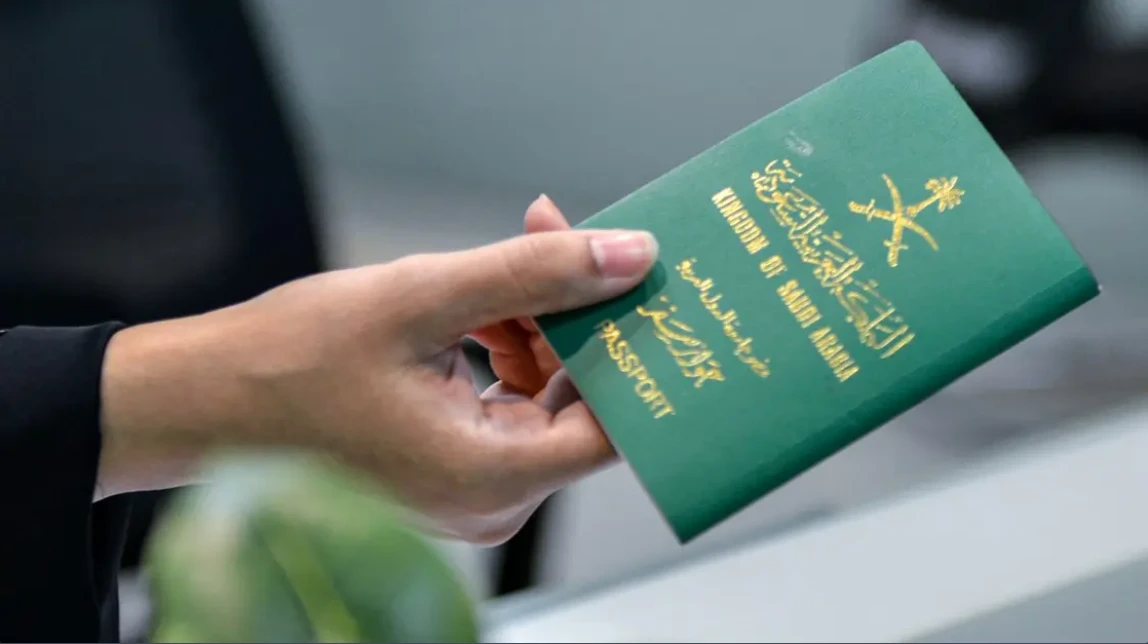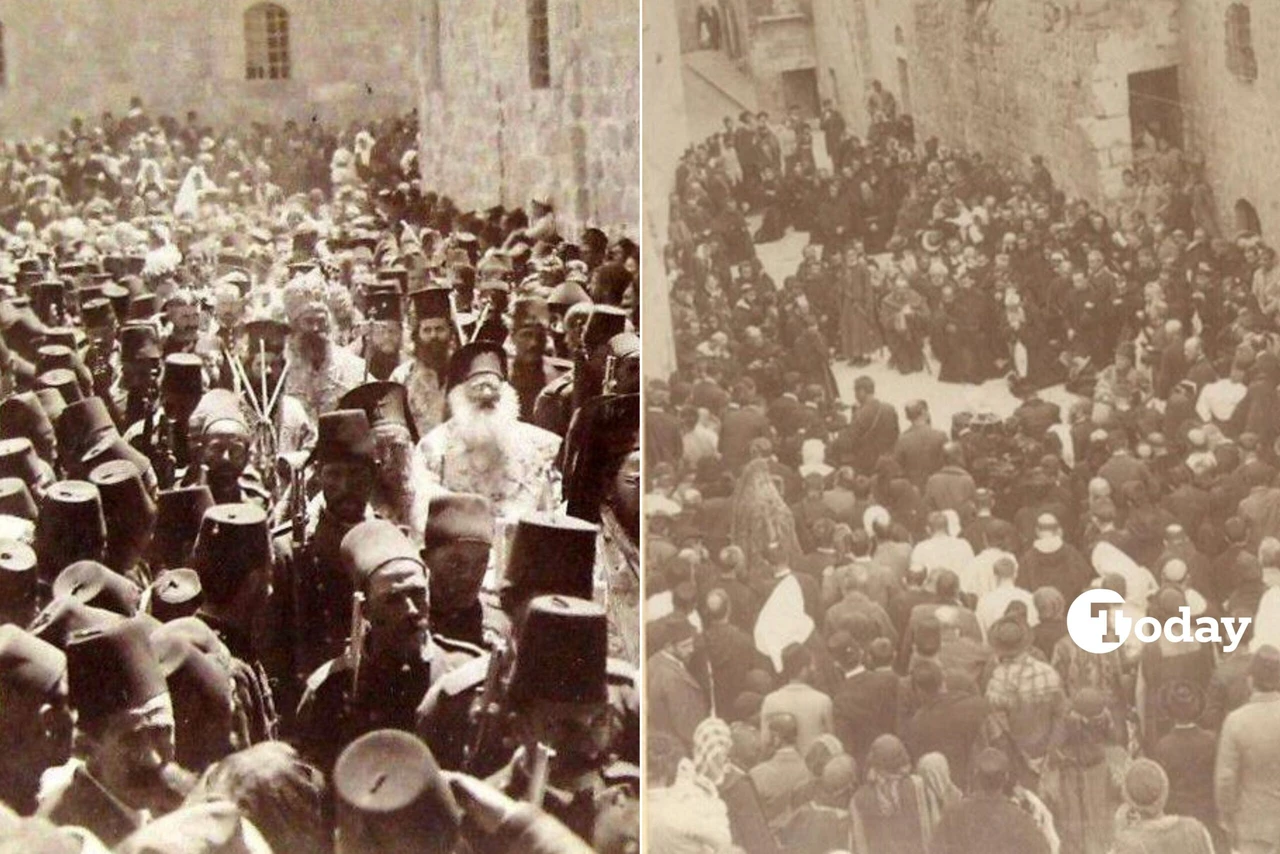Human Rights Watch says Israel committing war crime with forcible transfer in Gaza
 Palestinians displaced from shelters in Beit Hanoun cross the main Salaheddine road into Jabalia in the northern Gaza Strip following Israeli army evacuation orders on November 12, 2024. (AFP Photo)
Palestinians displaced from shelters in Beit Hanoun cross the main Salaheddine road into Jabalia in the northern Gaza Strip following Israeli army evacuation orders on November 12, 2024. (AFP Photo)
Human Rights Watch (HRW) has accused Israel of committing the war crime of “forcible transfer” in Gaza, according to a report released Thursday.
The organization claimed that Israel’s evacuation orders in the territory amount to “ethnic cleansing” in certain areas, where displaced Palestinians are unable to return.
Human Rights Watch
- Israeli authorities have caused massive, deliberate forced displacement of Palestinian civilians in Gaza since October 2023 and are responsible for war crimes and crimes against humanity.
- There is no plausible imperative military reason to justify Israel’s mass displacement of nearly all of Gaza’s population, often multiple times. Rather than ensuring civilians’ security, military “evacuation orders” have caused grave harm.
- Governments should adopt targeted sanctions and other measures, and halt weapons sales to Israel. The International Criminal Court prosecutor should investigate Israel’s forced displacement and prevention of the right to return as a crime against humanity.
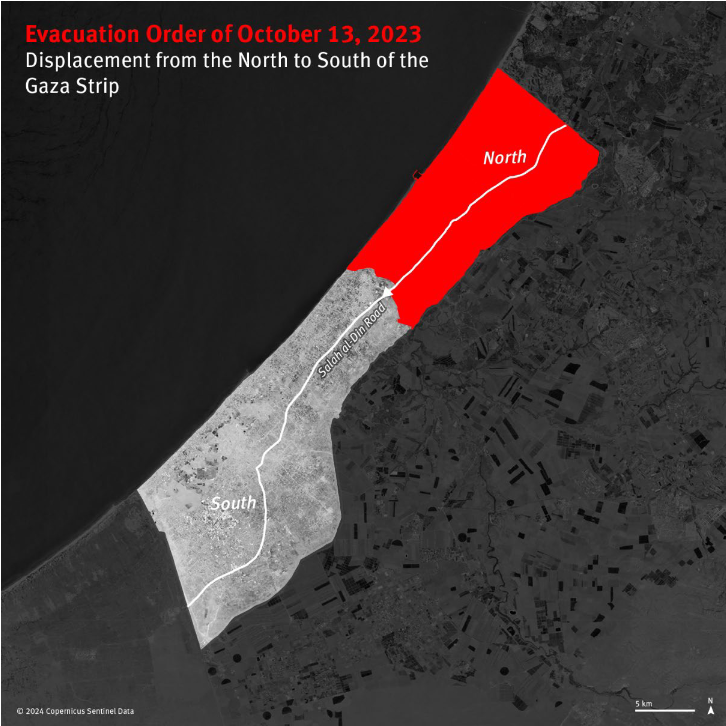
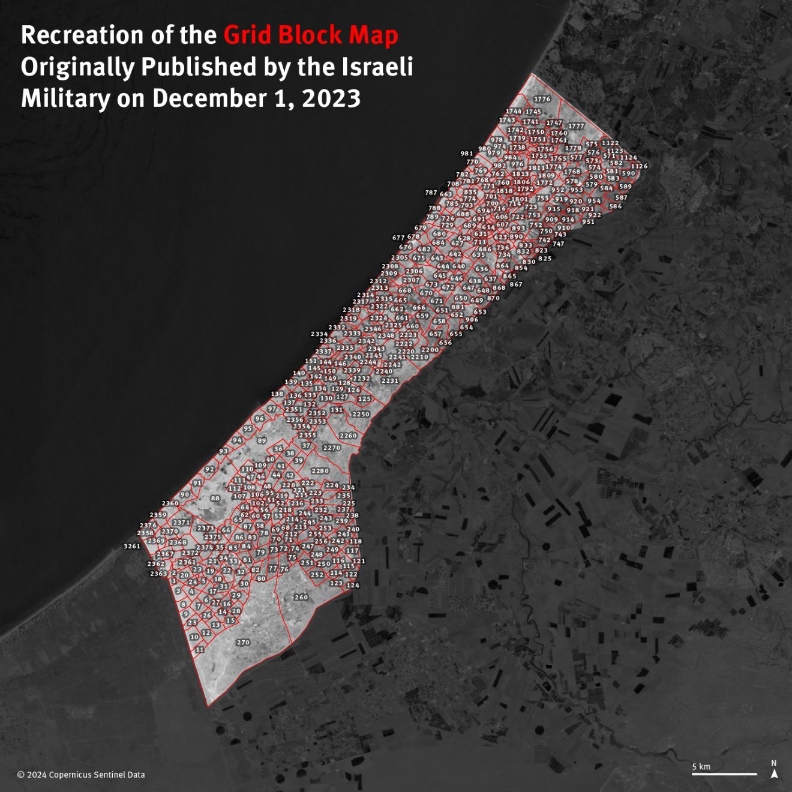
HRW report states ethnic cleansing in Gaza
The 172-page HRW’s “‘Hopeless, Starving, and Besieged’ Israel’s Forced Displacement of Palestinians in Gaza'” report, based on interviews with displaced Gazans, satellite imagery, and public data collected until August 2024, stated that Israel’s actions align with the definitions of forcible transfer under international law.
HRW researcher Nadia Hardman noted that Israel must provide justification for every instance of civilian displacement to comply with international humanitarian standards.
“Israel cannot solely rely on the presence of armed groups to justify the displacement of civilians,” Hardman said. The report emphasized that systematic destruction and displacement efforts in Gaza could meet the criteria for ethnic cleansing.
Rami, a 34-year-old man living in Jabalia with his wife and three children, said he and his
family left their home on Oct. 13, 2023, after receiving automated telephone calls from the Israelis to leave the area in which their home was located and head south immediately. “The dark irony is that they were bombing the area since October 7,” he said, “and after a whole week of that (the Israeli military) told us to leave.”
He described the Salah al-Din Road journey:
We were not attacked directly, but many bombs were dropped in spots behind us and very close to us; one of them was less than 100 meters away. We could hear the airstrikes all the time. The Salah al-Din Road usually takes one hour but it took us three hours because of the traffic. People were walking in the middle of the road and there were many burning cars and houses on the sides of the road. I took another (stranded) family from the road with us in my car, I wish I could have done more.
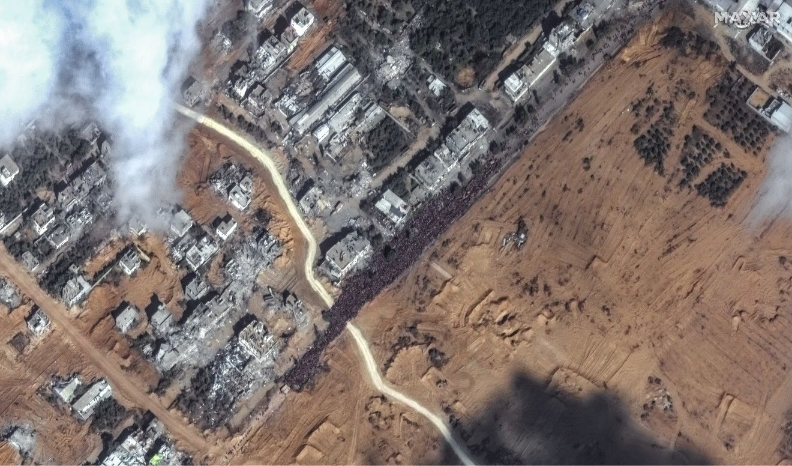
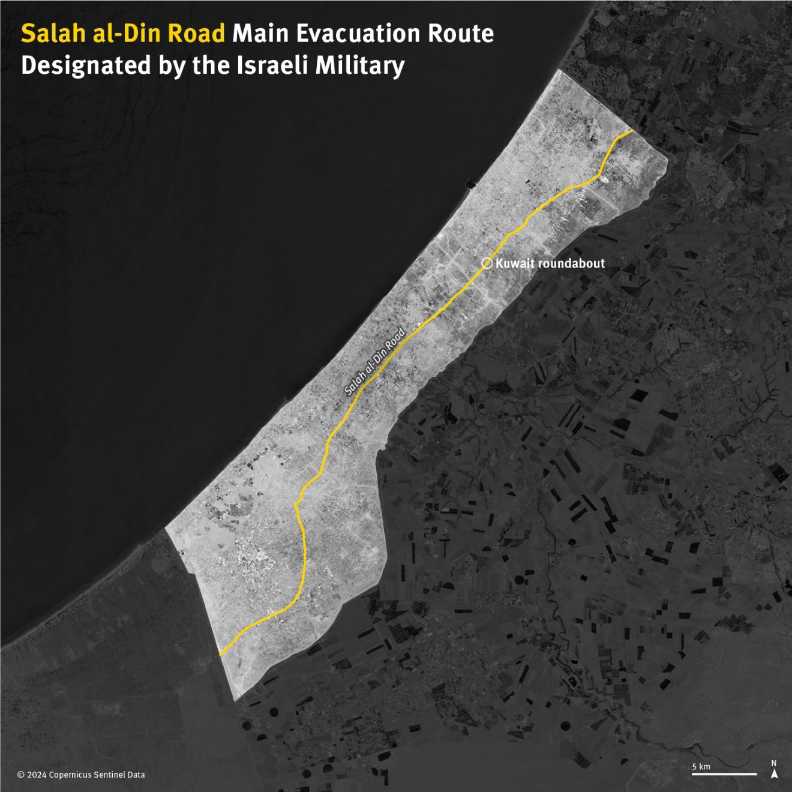
UN estimates 1.9 million Palestinians displaced
The Israeli military has issued at least 184 evacuation orders which have forced 1.9 million
Palestinians in Gaza to flee their homes.
The United Nations reported that as part of October 2024, 1.9 million Palestinians had been displaced in Gaza, a territory with a pre-war population of 2.4 million. HRW pointed out the Philadelphi and Netzarim corridors, where Israeli forces have cleared extensive buffer zones, making large sections of Gaza uninhabitable.
Ahmed Benchemsi, spokesman for HRW’s Middle East division, stated, “Rendering parts of Gaza permanently uninhabitable amounts to ethnic cleansing.”
The Philadelphi Corridor, along the Egyptian border, and the Netzarim Corridor have been expanded and cleared by the Israeli military for security purposes, HRW claimed.
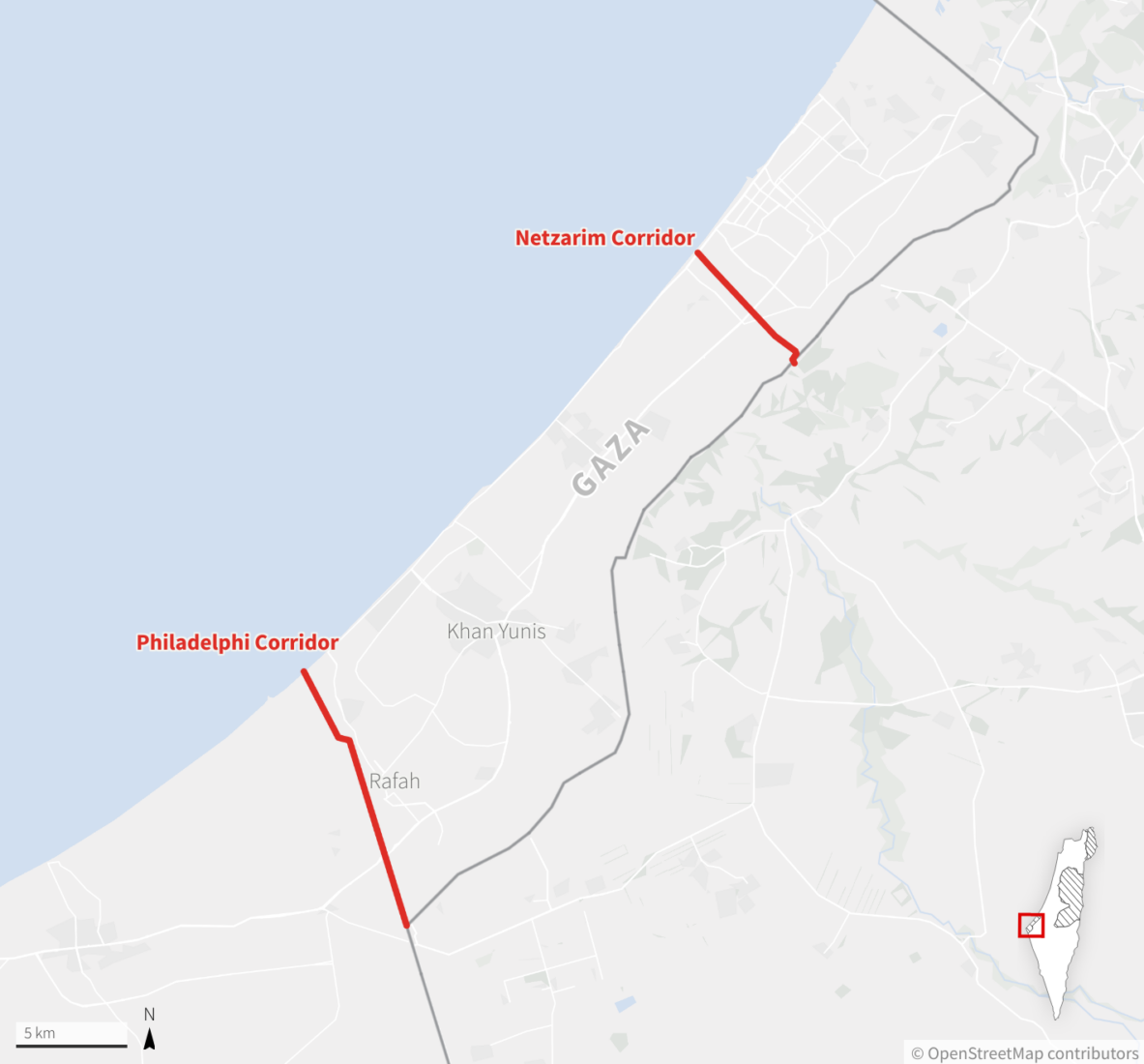
Israel’s response to the Hamas-led October 7 attacks has been to take steps to deny access to sufficient humanitarian aid in Gaza. It initially imposed a complete siege on Gaza, cutting off essential public services, including water and electricity, to Gaza’s civilian population and deliberately blocking the entry of fuel and rights-critical humanitarian aid.
Since then, Israel has damaged and destroyed resources vital for the realization of human rights, including hospitals, schools, water and energy infrastructure, bakeries, and agricultural land, and has permitted only limited humanitarian access, which remains utterly insufficient to meet the essential needs of the population.
As a result, Gaza is experiencing a humanitarian crisis. Children have died from malnutrition and dehydration, and as of October 2024, about 1.95 million out of Gaza’s 2.2 million people were projected to suffer “catastrophic,” “emergency,” or “crisis” levels of food insecurity, according to The Integrated Food Security Phase Classification (a tool for improving food security analysis and decision-making).
“the risk of famine between November 2024 and April 2025 persists as long as conflict continues, and humanitarian access is restricted.
Human Rights Watch
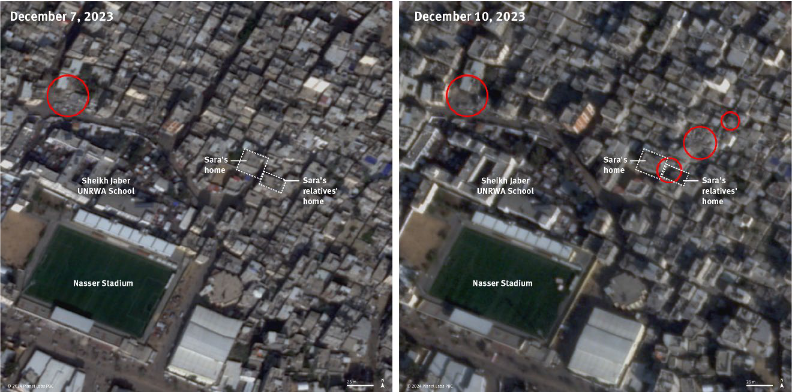
Calls for international investigation and sanctions
HRW called for an investigation into Israel’s policies by the International Criminal Court (ICC), describing the forced displacement as a violation of the Geneva Conventions and the Rome Statute.
The organization urged the international community to impose targeted sanctions on Israel, including halting arms sales.
HRW’s report comes amid escalating Israeli military operations in Gaza, particularly in the north, where intense offensives have forced at least 100,000 additional Palestinians to flee since early October 2024.
Residents in northern Gaza reported that Israeli forces have been besieging the remaining population and directing them south through checkpoints.
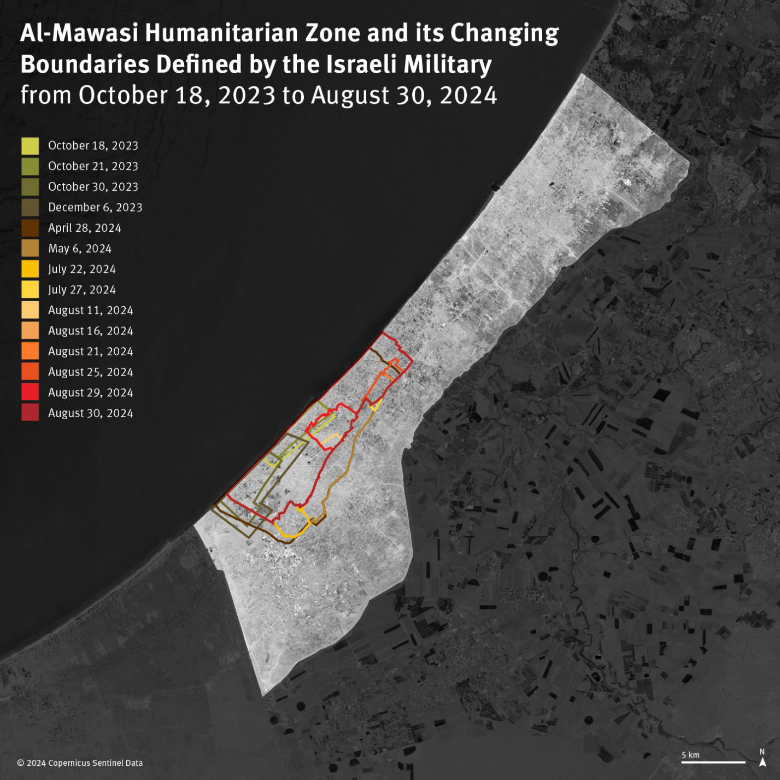
Widespread displacement raises concerns
Palestinian residents and medics have shared accounts of men being detained for questioning while women and children were directed toward Gaza City. One displaced resident, Ragheb al-Rubaiya, said, “They’re destroying everything in Jabalia. The goal is clear: to wipe out the north and cut it off from Gaza.”
